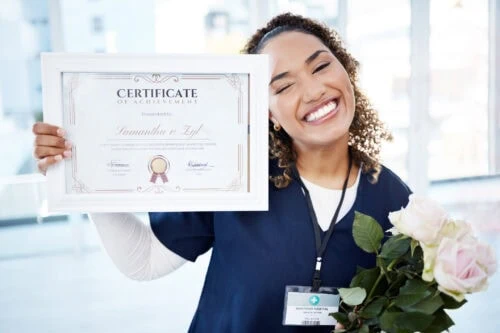Welcome to your ultimate guide on mastering interview strategies! Whether you are stepping into the job market for the first time or looking to switch gears in your career, knowing how to navigate an interview successfully is crucial. This guide is designed to equip you with comprehensive, easy-to-follow strategies to boost your confidence and increase your chances of making a memorable impression on potential employers.
Why Focus on Interview Strategies?
Interviews can be daunting, especially without proper preparation. They are your chance to shine and show why you are the right fit for the job. Effective interview strategies will help you articulate your skills and experiences, manage your nerves, and stand out from the competition. So, let’s get started on this journey to enhance your interview skills and secure your next job opportunity!
Understanding Interview Strategies
Mastering interview strategies is crucial for making a strong impression. By understanding what to expect and how to present yourself, you can increase your chances of success. Here are key strategies to keep in mind before, during, and after your interview:
Research the Company
Start by gathering as much information as possible about the company. This is not only about what they do but also their culture and industry position. A deep understanding shows you’re genuinely interested and prepared. Helpful resources include the company’s website, recent press releases, and articles in industry publications.
Understand the Role
Review the job description thoroughly. Understand the skills and experiences required. This will allow you to tailor your responses and demonstrate your perfect fit for the role. Consider how your strengths align with the job’s demands.
Practice Common Interview Questions
Prepare for common interview questions. Practicing your responses helps minimize nerves and improves your delivery. Stories showcasing your achievements are particularly impactful. For more tips, check out our guide on preparing for common interview questions.
Prepare Your Questions
Come prepared with questions for your interviewer. This shows your interest in the role and your proactive approach. Questions might relate to day-to-day responsibilities, company culture, or the team’s goals. Avoid questions about salary or benefits until a later stage in the process.
Professional Attire and Punctuality
Dress appropriately for the industry and company. Being well-dressed shows respect for the interviewer and your seriousness about the role. Moreover, ensure you are punctual. If possible, arrive 10-15 minutes early to alleviate stress and demonstrate reliability.
By leveraging these strategies, you set the stage for a successful interview. Begin by researching the company thoroughly, a task made easier by platforms like Glassdoor, which provides insights into company cultures and interview processes. Remember, a well-prepared candidate is often a successful one. To further your readiness, explore additional resources on our blog and look into the next steps after an interview to seal the deal.
Before the Interview: Preparation
Preparation is key to acing your interview. Ensuring you are thoroughly prepared can significantly reduce stress and boost your confidence. Here are essential preparation steps to follow:
Review Your Resume
Make sure you know every detail on your resume. Be ready to discuss your past job roles, responsibilities, and achievements without hesitation. This will help you speak confidently about your professional history and its relevance to the job you’re applying for.
Map Out the Location
Whether your interview is in-person or virtual, knowing where you need to be and how to get there is crucial. For in-person interviews, check the route and traffic conditions to ensure you arrive on time. For virtual interviews, test your technology beforehand, ensure your internet connection is stable, and familiarize yourself with the software being used.
Prepare Your Interview Space
For virtual interviews, create a professional backdrop. Ensure the lighting is adequate and the area is quiet. Have a clean, organized space to convey professionalism. Adjust your camera to ensure it’s at eye level, ensuring eye contact with the interviewer.
Mind Your Body Language
Non-verbal communication can be just as important as your verbal responses. Practice maintaining good posture, offering a firm handshake, and using appropriate hand gestures. Smiling and nodding show attentiveness and enthusiasm.
Role-play with Mock Interviews
Practice with a friend or family member. Record your practice sessions to review your answers and body language. This will help you refine your responses and work on areas that need improvement.
Each of these steps is vital in preparing for your interview. Moreover, for those looking to delve deeper into interview preparation, our dedicated guide offers additional insights and strategies. Furthermore, resources such as O*NET Online can help you better understand job roles, aiding in your preparation efforts.
During the Interview: Techniques to Excel
Once you’re in the interview, you must use effective techniques to stand out as a top candidate. Here are strategies to employ during the interview to showcase your best self:
Engage with Confidence
Start strong with a confident greeting. If in person, offer a smile and a firm handshake. This sets a positive tone. Also, maintain good eye contact throughout to demonstrate your focus and confidence.
Listen Actively
Listening is as important as answering questions. Show your engagement by nodding and reacting appropriately to the interviewer’s comments. This shows respect and genuine interest in the conversation.
Communicate Clearly
Answer questions concisely and clearly. Avoid overly complex words or long-winded responses. Instead, aim for clarity and brevity to ensure your points are understood. If you need a moment to think, it’s okay to briefly pause before responding.
Illustrate with Examples
When discussing your skills and experience, use specific examples. This concrete evidence of your abilities makes a stronger impression than vague statements. It also helps the interviewer visualize how you can contribute to their team.
Address the Interviewer’s Concerns
If you sense hesitation from the interviewer about specific qualifications, don’t shy away. Address these concerns directly by reinforcing your strengths or sharing how to close the skills gap.
Show Enthusiasm
Express your enthusiasm for the role and the company. Let them know why you are excited about the opportunity and how you align with the company’s values and goals. This can make you memorable.
Applying these techniques can greatly enhance your performance during the interview. Additionally, for further guidance, visiting the U.S. Department of Education or reviewing resources on the Bureau of Labor Statistics can provide you with valuable information on career development and skills enhancement.
After the Interview: Next Steps
Post-interview actions are integral to leaving a lasting positive impression and increasing your chances of a job offer. Here’s what you should do after an interview:
Send a Thank-you Email
Within 24 hours of your interview, send a personalized thank-you email to each interviewer. Express your appreciation for their time and reiterate your enthusiasm for the role. This not only shows your manners but also reinforces your interest in the position.
Follow Up
If you haven’t heard back within the timeframe initially discussed, it’s appropriate to send a polite follow-up email. Ask for any updates and express your continued interest in the position. Keep the tone professional and courteous.
Reflect on Your Performance
Review your interview while it’s still fresh in your mind. Think about the questions asked and your answers. This reflection will help you identify areas of strength and those needing improvement for future interviews.
Keep Applying
Continue applying for other opportunities. Maintaining your job search momentum is crucial, as it keeps your options open and may leverage better job offers.
This post-interview strategy ensures you remain proactive and engaged in your job search. Remember, persistence often pays off. Additionally, to enhance your skills and stay updated on market trends, platforms such as LinkedIn Learning offer valuable resources.
Common Interview Questions and How to Answer Them
Anticipating the questions you might be asked and preparing thoughtful responses can significantly enhance your interview performance. Here are some common interview questions with strategies on how to respond effectively:
Tell Me About Yourself
Focus on your professional journey, key achievements, and why you’re excited about the opportunity. Keep your answer concise and relevant to the position.
What Are Your Strengths?
Choose strengths that are most relevant to the job. Provide examples that demonstrate how these strengths have positively impacted your previous roles.
What Is Your Biggest Weakness?
Identify a real weakness but quickly pivot to explaining how you’re addressing it. This shows self-awareness and a commitment to professional growth.
Where Do You See Yourself in Five Years?
Align your career goals with the company’s trajectory. This shows that you think long-term and can be a stable addition to their team.
Why Should We Hire You?
Sum up your skills, experiences, and achievements uniquely qualifying you for the position. Emphasize how you can contribute to the company’s objectives.
Additionally, resources like Purdue University’s Online Writing Lab can offer additional help in formulating structured and impactful responses.
Mistakes to Avoid in Interviews
Avoiding critical mistakes during your interview is as important as executing the right interview strategies. Here are common pitfalls to steer clear of:
Being Unprepared
Lack of preparation can lead to poor performance. Always research the company, review the job description, and practice answering interview questions.
Poor Non-Verbal Communication
Your body language speaks volumes. Avoid slouching, fidgeting, or breaking eye contact too frequently, as these can signal disinterest or nervousness.
Speaking Negatively About Previous Employers
When discussing past jobs, focus on positive experiences and your learning. Speaking ill of previous employers can appear unprofessional.
Not Tailoring Your Answers
Generic answers won’t help you stand out. Tailor your responses to reflect how your skills and experiences align specifically with the job and company culture.
Failure to Ask Questions
Asking insightful questions shows your interest in the role and company. Prepare a few meaningful questions before the interview.
By avoiding these mistakes, you can present yourself as a confident and capable candidate. Additionally, further exploring USAJobs.gov will give you more insight into federal interview techniques that might align with your career goals.
Additional Resources for Interview Preparation
To further improve your interview strategies, it’s beneficial to utilize various resources. Below are some valuable tools and platforms to help you prepare effectively:
Online Courses and Workshops
Engage in online courses that focus on building communication skills, answering interview questions, and much more. Websites like Coursera offer courses designed specifically for interview preparation.
Books and Guides
Read comprehensive books that outline successful interview techniques and offer detailed advice. Titles like “What Color Is Your Parachute?” provide timeless advice for job seekers.
Professional Interview Coaching
Consider hiring a career coach specializing in interview preparation. Coaches can offer personalized feedback and strategies tailored to your specific industry.
Mentorship Programs
Connect with a mentor in your field. Experienced professionals can provide insights and real-world advice that is invaluable during the interview process.
Integrating these resources can undoubtedly enhance your preparation and boost your confidence. Additionally, for video tutorials and mock interview platforms, check out Khan Academy, where you can practice and learn at your own pace.
FAQs
Here are answers to frequently asked questions about interview strategies:
How early should I arrive for my interview?
Arrive 10-15 minutes early. This gives you enough time to relax and prepare mentally without being rushed.
What should I wear to my interview?
Dress professionally, suitable for the company’s culture. When in doubt, it’s better to be slightly overdressed than too casual.
Can I bring notes to my interview?
Yes, you can bring notes, especially your questions for the interviewer. However, refer to them sparingly to maintain eye contact.
How do I handle a video interview?
Test your technology beforehand, ensure your background is clean, and dress professionally, just as you would for an in-person interview.
What is the best way to handle nerves during an interview?
Prepare thoroughly, practice deep breathing techniques, and remember that it’s okay to pause and think before you answer.
Following these tips can make your interview experience more manageable and successful.
Conclusion
Mastering interview strategies is essential to navigating the job market successfully. From preparation through follow-up, each step you take should be aimed at showcasing your best qualities and alignment with the potential employer’s needs. Remember, every interview is an opportunity to learn and improve, regardless of the outcome.
Take Your Next Step
Now that you’re armed with the tools and knowledge for an effective interview, why not take the next step in your career journey? Join Diversity Employment today and gain access to resources tailored to enhance your job search and connect you to diversity and inclusion positions with employers who are committed to DEI in their workplaces. Let us help you turn your career aspirations into reality.




